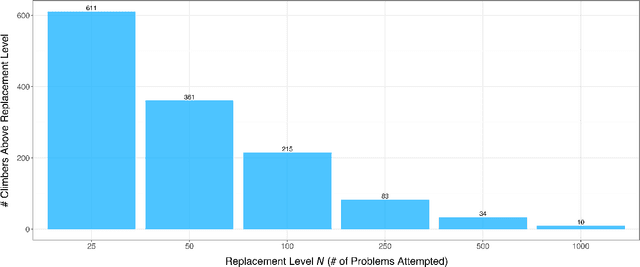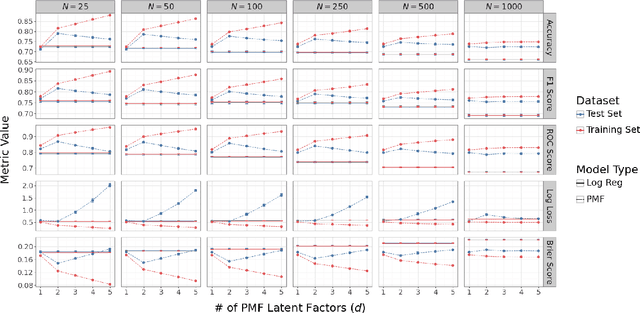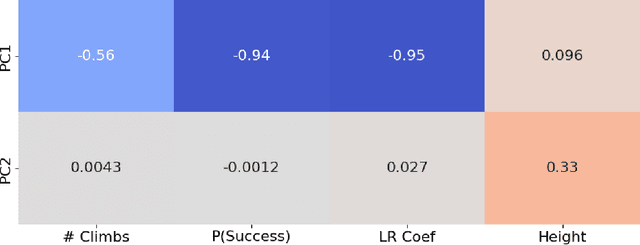Victor Hau
Boulder2Vec: Modeling Climber Performances in Professional Bouldering Competitions
Nov 04, 2024



Abstract:Using data from professional bouldering competitions from 2008 to 2022, we train a logistic regression to predict climber results and measure climber skill. However, this approach is limited, as a single numeric coefficient per climber cannot adequately capture the intricacies of climbers' varying strengths and weaknesses in different boulder problems. For example, some climbers might prefer more static, technical routes while other climbers may specialize in powerful, dynamic problems. To this end, we apply Probabilistic Matrix Factorization (PMF), a framework commonly used in recommender systems, to represent the unique characteristics of climbers and problems with latent, multi-dimensional vectors. In this framework, a climber's performance on a given problem is predicted by taking the dot product of the corresponding climber vector and problem vectors. PMF effectively handles sparse datasets, such as our dataset where only a subset of climbers attempt each particular problem, by extrapolating patterns from similar climbers. We contrast the empirical performance of PMF to the logistic regression approach and investigate the multivariate representations produced by PMF to gain insights into climber characteristics. Our results show that the multivariate PMF representations improve predictive performance of professional bouldering competitions by capturing both the overall strength of climbers and their specialized skill sets.
 Add to Chrome
Add to Chrome Add to Firefox
Add to Firefox Add to Edge
Add to Edge